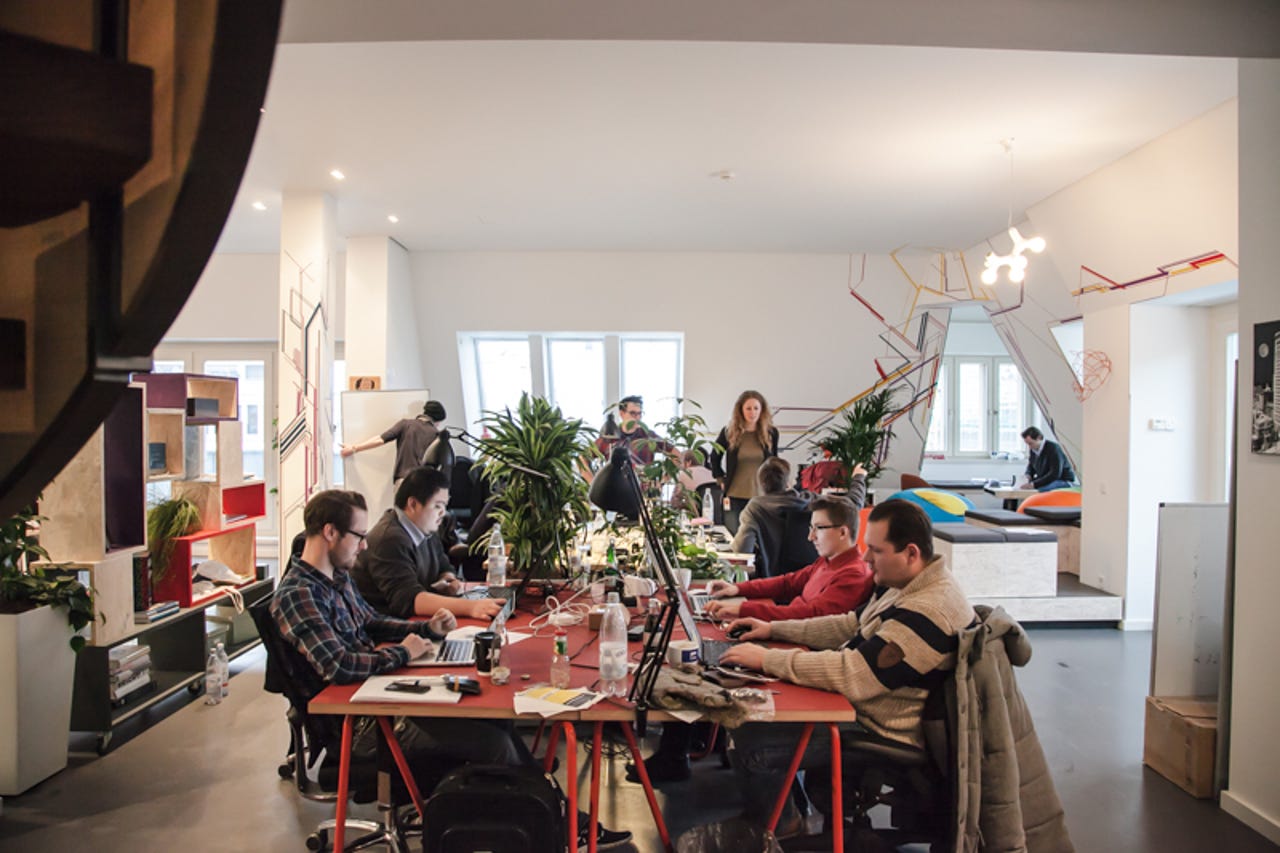On sharing startups (and a sense of cool): How Berlin and Tel Aviv's tech scenes are growing together


One's an ancient port city with a view of the Mediterranean, while the other's a landlocked former Prussian capital.
Berlin and Tel Aviv – which, by outward appearances, don't seem to share much – actually have many common bonds. "The atmosphere here in Berlin is similar to Tel Aviv," said Amir Harel, co-founder of Adincon, a startup that specialises in optimising and managing in-content advertisements.
Harel is from Tel Aviv, but has been living in Germany for more than three years. Adincon's other co-founder, Harel's brother, continues to work out of Tel Aviv.
Having lived in both cities, Harel has noticed that they share a sense of youthful enthusiasm, and that cultural elements are similar. "You see a lot of young people who are very innovative, along with culture and art," he said.
Maybe this sense of atmosphere – "cool" is a word that's liberally thrown around for both cities – has something to do with why they have both emerged as active startup hubs, sharing increasingly interconnected links.
"There are good synergies between the two cities," said Zack Weisfeld, the senior director of Microsoft Ventures programme in Europe.
Microsoft has accelerators in both Tel Aviv and Berlin. In recent weeks, Ventures staff have been in Berlin to recruit startups for an upcoming Tel Aviv accelerator round.
In particular, Weisfeld said, European startups working in the areas of health and online security might find that they fit better in Tel Aviv, given the ecosystem's strengths and infrastructure in these areas.
For Berlin startups that might be considering making the jump, the relative openness of Tel Aviv's startup ecosystem might mean that networking and making connections can be easier.
"In Israel," Harel said, "I can just send an email to a CEO that I want to meet, even if I don't know him.
"But in Berlin, if you don't know somebody you actually need some kind of introduction, and you also need to be more formal."
Practically speaking, this directness might also encourage startups to take more risks.
"I think there's something with the culture that startups will see in Tel Aviv," Weisfeld said, "which will actually help them get some of their filters off. It might help them to be "more open to try new things, which I think is critical."
However, many Berlin-based startups — especially those in their early stages — might also be attracted to Tel Aviv simply to help the bottom line. "When you are seeking investments, you have more options in Israel than in Germany in terms of access to money," Harel said.
Indeed, a 2012 report by Startup Genome and Telefonica found that there "is no funding gap in Tel Aviv" and that the city "has a healthy capital funnel throughout the startup lifecycle" — which is on par with funding for startups from Silicon Valley.
By contrast, the report found that Berlin startups raised about 80 percent less funding than those in Silicon Valley.
A window to Europe
That's not to say that, for startups, Berlin is an also-ran. In fact, some Israeli entrepreneurs are finding that the city can be ideal as a European beachhead of sorts.
"The biggest challenge for Tel Aviv startups is that there's no local market for them," Weisfeld said. "So they need very quickly to get to the US, Europe, or Asia.
"Israeli startups are finding out that Berlin is a great window for them to go into Europe."
Harel would agree. He sees the advantage of being in Berlin, he said, "because I can approach the European market, and everything is accessible to me".
Perhaps as an added bonus, Harel finds that in Berlin, startup life can be a bit less frenetic than it is in Tel Aviv. "It's easier here to keep a life-work balance," he said.
Plus, because the cost of living in Berlin is relatively low, it can be much more affordable for cash-starved startups then expanding to another European startup ecosystem, such as London or Stockholm.
Conquering the German market
"We're now planning on conquering the German market," said Yonatan Zur, co-founder of Screemo, a startup that links advertising across large displays and smartphones.
Screemo was launched out of Tel Aviv, and is now participating in Deutsche Telekom's Fit4Europe program, which is part of the telco's Berlin-based hub:raum accelerator.
For Screemo, Zur sees Berlin as a great place from which to access a relatively untapped market. With a GDP of $3.4tr and some of the world's largest corporations, along with a huge range of small and medium enterprises — the Mittelstand — Germany's economy is the biggest in Europe, but one which many Israeli startups have traditionally tended to avoid.
"Germany is a very big market," Zur said, "but a lot of Israeli companies skip it, mostly because of the language."
For this, the Plug and Play accelerator has been an asset; the accelerator's staff has helped introduced Screemo to potential clients, easing communication.
Indeed, Harel, who participated in Axel Springer's Plug and Play accelerator earlier this year, advises startups who want to break into Berlin to find an accelerator early. "They'll get access to all the people they don't know yet," he said, "and it will open doors for them."
Beyond the language, Zur noted that for some Israelis, small business culture differences, such as how to dress when going to meetings in Germany, can be tricky, at least compared to the US. (Screemo is also working on developing a US presence as well.) "In the US, we know how to act; in Germany we're not sure about it," he said.
"The main issue is that there's not a lot of information in Israel regarding Germany from this point of view."
Even so, with the language and cultural differences notwithstanding, "we find it much easier to communicate with Germans, both on the personal level, and also when doing business," Zur said, "even though the cultures are quite different."
Specifically, Zur said that Germans are more likely to give honest feedback, in his experience.
"If they like something, we'll know it," he said. "If they don't like it, they'll tell us. In the US, it can be harder to read people."
Read more on Berlin
- Google's Tel Aviv Campus set for overhaul that leaves startups' future under a cloud
- Behind the scenes at Microsoft's Berlin accelerator
- Microsoft, Akamai launch security startup accelerator in Israel
- Berlin's new Google-backed startup hub finally arrives
- How Microsoft is aiming to get in on Berlin's startup action - and why